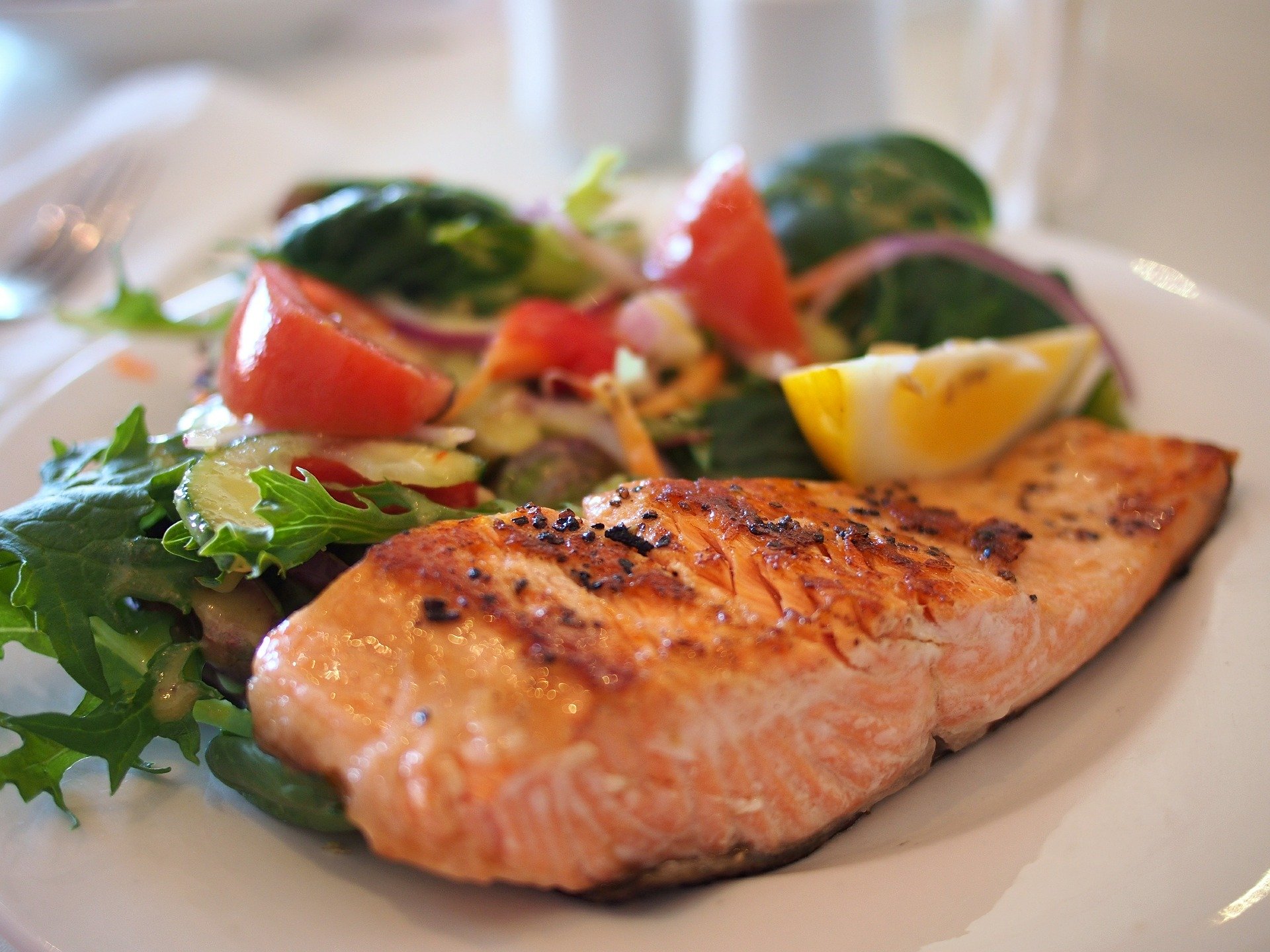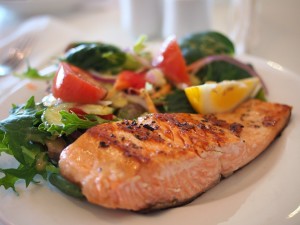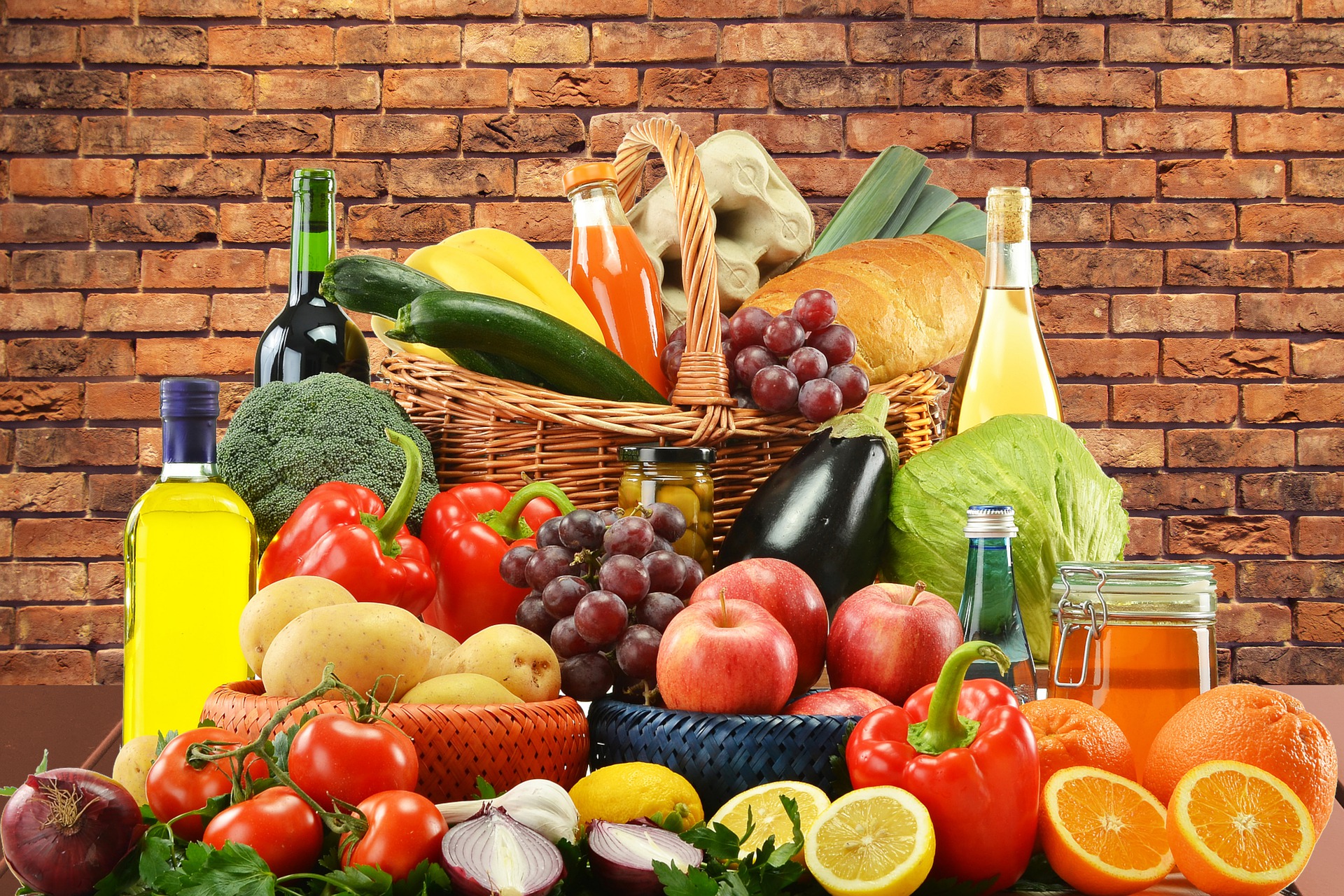
SICKLE CELL AND FOOD TO EAT IN 2020
Image by cattalin from Pixabay
2020 is the year to eat ourselves to wellness and also to make a conscious effort to eat what is beneficial for anyone with SCD.
Patients with SC anemia have greater than average requirements for both calories and micro-nutrients. A diet emphasising fruits, vegetables, whole grains and legumes will provide a greater proportion of essential nutrients than a typical Western diet and appropriate supplementation (1-3 times the recommended intakes for most essential nutrients) can prevent deficient and may decrease the likelihood of disease exacerbation.
If you have SCD, you will need a high calorie, nutrient dense diet and adequate fluid consumption to maintain hydration. The most essential vitamins and nutrients to take are: Vitamins A, B6, C, E, Magnesium, Zinc and Omega-3.
As a matter of fact, when fruits and vegetables are consumed continuously, they help reduce the risk of many health conditions. That is why medical practitioners have been advising that we add fruits and vegetables to our diet because of their health benefits.
Vitamin A and carotenoids: We need vitamin A for healthy skin and mucus membranes, immune system, and good eye health and vision. Vitamin A can be sourced from the food we eat, through beta carotene, for example, or in supplement form.
Carotenoids are plant pigments responsible for bright red, yellow and orange hues in many fruits and vegetables. They also have an important anti-oxidant function of deactivating free radicals – single oxygen atoms that can damage cells by reacting with other molecules.
Some carotenoids are converted by the body to vit A, which is essential to vision, and normal growth and development. Carotenoids also have anti-inflammatory and immune system benefits.
Foods to eat are: apricots, asparagus, beef liver, beetroots, broccoli, carrots, corn, guava, kale, mangoes, spinach, all green, nectarines, peaches, pink grapefruit, pumpkin, sweet potatoes, tangerines, tomatoes and watermelon.
Vitamin B6: Vitamin B6, also known as pyridoxine, helps allow the body to use and store energy from protein and carbohydrates in food form, haemoglobin, the substance in red blood cells that carries oxygen around the body.
Vit B6 is found in a wide variety of foods, including: pork, poultry, such as chicken or turkey, fish, bread (sour bread or fortified – which are better for your stomach), wholegrain cereals, such as oatmeal, wheatgerm and brown rice, eggs, vegetables, soya beans, peanuts, milk, potatoes and some fortified breakfast cereals.
Vitamin C: Vit C is a water-soluble vitamin that’s found in many foods, particularly fruits and vegetables. It is well known for being a potent anti-oxidant, as well as having positive effects on skin health and immune function. It is also vital for collagen synthesis, which supports skin integrity as one ages, connective tissue, bones, teeth and small blood vessels. The human body cannot produce or store vitamin C. Vit C helps improve immunity and protects you agains common infections and pathogens and it also keep your eyes healthy.
Therefore, it is essential to consume it regularly in sufficient amounts.
Foods rich in vitamin C are: rose hip, chili peppers, guava, blackcurrants, thyme, parsley, kale (spinach, greens), Brussel sprouts, lemon, lychees, papaya, strawberries, oranges, broccoli, cantaloupe, cauliflower, kale, kiwi, orange juice, papaya, red, green or yellow pepper, sweet potato, strawberries and tomatoes.
Vitamin E: Vitamin E is a group of powerful antioxidants that protect your cells from oxidative stress. Adequate vitamin E levels are essential for the body to function normally. If you don’t get enough, you may become more prone to infections, experience impaired eyesight or suffer from muscle weakness.
Fortunately, vitamin E is widespread in foods. As a result, you are unlikely to become deficient unless your nutrient absorption is impaired. Nevertheless, everyone should try to eat plenty of whole foods rich in vitamin E, which are: Sunflower seeds, almonds, peanuts, salmons, goose meat, avocado, red raw pepper, mangoes, snails, crayfish, cod, trout, pistachio, pumpkin seeds, cashew nuts, pecan nuts.
Magnesium: is a mineral that our bodies rely on to feel fit, healthy and full of vitality. Magnesium is also required for the formation of bones, muscles, contractions and blood pressure regulation. Magnesium helps promote energy, sleep, blood sugar and hormone balance.
Magnesium is found in a variety of food, but the best sources tend to be green leafy vegetables (spinach, kale, etc); raw cacao; nuts and seeds; fruits (figs, avocado, bananas, raspberries); legumes (black beans, chickpeas, kidney beans); seafood (salmon, mackerel, tuna); whole grains (brown rice, oats); raw avocado, dark chocolate, tofu, baked beans, chollera powder.
Zinc: Zinc is a mineral that’s essential for good health. It’s required for the functions of over 300 enzymes and involved in many important processes in your body. It metabolizes nutrients, maintains your immune system and grows and repairs body tissues. Your body doesn’t store zinc, so you need to eat enough every day to ensure you’re meeting your daily requirements.
Food rich in Zinc: Meat is an excellent source of zinc. Red meat is a particularly great source, but ample amounts can be found in all different kinds of meat, including beef, lamb and pork. Shellfish (crabs); legumes like chickpeas, lentils and beans all contain substantial amounts of zinc. Seeds; nuts (Eating nuts such as pine nuts, peanuts, cashews and almonds can boost your intake of zinc.); diary foods like cheese and milk provide a host of nutrients, including zinc. Eggs; whole grains like wheat, quinoa, rice and oats contain some zinc. Potatoes and dark chocolate.
Omega-3 fatty acids: promotes brain health, your heart, fights inflammation; can improve bone and joints; and lastly, it is good for your skin.
Food encriched in Omega-3 are: oily fish (mackerel, salmon, seabass, sardines, herring, shrimps and trout); Seaweed, nori, spirulina, and chlorella powder, walnuts; kidney beans.
AFRICAN FOOD WITH THE ABOVE VITAMINS:
Black Velvet Tamarind has anti-inflammatory properties: the fruit pulp contains abundant vit C which helps to fight against microbial infections. Tamarind is high in many nutrients. A single cup (120 grams) of the pulp contains: Magnesium: 28% of the RDI, Potassium: 22% of the RDI, Iron: 19% of the RDI, Calcium: 9% of the RDI, Phosphorus: 14% of the RDI, Vitamin B1 (thiamin): 34% of the RDI, Vitamin B2 (riboflavin): 11% of the RDI, Vitamin B3 (niacin): 12% of the RDI, Trace amounts of vitamin C, vitamin K, vitamin B6 (pyridoxine), folate, vitamin B5 (pantothenic acid), copper and selenium.
Jute Leaves: Jute leaves are said to be a good source of beta-carotene, which is why it is used in medicines in most parts of Africa and the Middle East. Jute leaves are said to contain iron, protein, vit A, C, and E; thiamine, riboflavin, niacin, folate and dietary fibres. The leaves are also said to have anti-inflammatory properties.
Garden Eggs: are a natural source of vit B, such as thiamin, niacin, B6 that helps the body in the proper use of fat and protein. Garden eggs, also contributes to the nervous system positively and they are rich in anti-oxidants.
Guava: is one of the richest sources of vit C; it actually contains 4 times the vitamin C content in oranges.
Moringa: has many important vitamins and minerals. The leaves have 7 times more vitamin C than oranges and 15 times more potassium than bananas. Moringa also contain calcium, protein, iron, and amino acids, which help your body heal and build muscle. Moringa is packed with anti-oxidants, which are substances that can protect cells from damage and may boost the immune system.
Plantains: They contain more vitamins and minerals than potatoes. They are rich in fiber, vitamins A, C, B6 and the minerals magnesium and potassium.
Tiger Nuts: are rich in vitamins and nutrients namely: vitamins C and E, iron, Magnesium, Zinc, Potassium and Calcium. Tiger nuts are also a rich source of anti-oxidants, which are beneficial compounds that protect your body against aging.
Yam: are not only an excellent source of fiber but also it is also high in potassium and manganese, which are important for supporting bone health, growth, metabolism and heart function. These tubers also provide decent amounts of other micro-nutrients such as copper and vitamin C. Copper is vital for red blood cell production and iron absorption, while vitamin C is a strong anti-oxidant that can boost your immune system.
Hibiscus tea/Zobo: Hibiscus tea is rich in powerful anti-oxidants and may therefore help prevent damage and disease caused by the build-up of free radicals. Anti-oxidants are molecules that help fight compounds called free radicals, which cause damage to your cells. It aids digestion and keeps you hydrated. It also contains vitamin C, a strong anti-oxidant that is responsible for keeping our immune system healthy. Hibiscus tea is also high in iron, a mineral that keeps the immune system balanced and helps the body to maintain red blood cells.
Okra: sometimes referred to as ‘lady’s finger’, okra comes in 2 colours: red and green. Both varieties taste the same and the red one turns green when cooked. Okra boast an interesting nutrient profile: Magnesium: 14% of the Daily Value (DV), Folate: 15% of the DV, Vitamin A: 14% of the DV, Vitamin C: 26% of the DV, Vitamin K: 26% of the DV, Vitamin B6: 14% of the DV. Okra is also an excellent source of vitamin C and it packs many anti-oxidants that are beneficial to your health.
Ugwu: It is called sokoyokoto in Yoruba, Ugu in Ibo, Kabewa in Hausa, Ikong-Ubong in Efik and pumkin leaves in English. It contains calcium, iron, potassium and manganese. It also provides a good amount of the following vitamins: A, C, B2 an E. The vitamin contents present in this vegetable helps in maintaining healthy tissues, cells, membrane as well as maintaining the skin and treating the skin of wounds in the case of vit C.
Ugwu leaves are rich in powerful anti-oxidants that offer some immune system and anti-inflammatory benefits. The presence of iron and other important minerals in them contribute in the boosting of blood in the body system and prevent anemia. Ugwu also contains a good amount of calcium that the body needs for maintaining healthy bones and teeth and also keep the skeletal system in normal functioning conditions.
Ugwu contains magnesium which plays a vital role in making the bone firm, and strong, as it helps the adequate absorption of calcium by the bones. It also plays the same function on the teeth, as adequate magnesium in the body helps in making the teeth stronger and firm. Ugwu also has potassium as one of the minerals it contains which also help in maintaining the bone mineral density.
Individuals with SCD are often low in these vitamins and nutrients. These deficiencies cause a significant depreciation in blood-antioxidant status in these patients, and the resulting oxidative stress may precipitate vaso-occlusion–related acute chest syndrome or .
Studies indicate supplementation of zinc, magnesium, vitamins A, C, and E or treatment with a combination of high-dose antioxidants can reduce the percentage of irreversibly sickled cells.
Antioxidant plant phenols, such as flavonoids, may also reduce the oxidative stress in SCD. These long-chain omega-3 fatty acids increase the fluidity of red blood cell embranes, which may prevent sickle cell crisis and have significant therapeutic benefits including reduction of severe anemia.
From www.livescience.com From http://www.wedmd.com
www.healthline.com From: Huffingtonpost.com.au
My book – HOW TO LIVE WITH SICKLE CELL: Sickle Cell and I (is now available on OkadaBooks and Amazon). Pls get your copy.








I have really learnt a lot on how to take care of my 3 beautiful warriors
Hello Nkiru, wow, 3 beautiful warriors! They keep you busy I am sure; well do look after yourself in the process too. Wishing you well.
Thanks for this info,God bless you.
Hello Juwe, thank you for your words of encouragement. Wishing you well.
Good list you have there.
For some reason when I consume okra, continuously, it tends to cause crisis in 3 to 4 days for me.
I don’t know if I am the only one in this situation.
Hello Tayo, maybe you need to pace yourself and not consume it continuously. Wishing you well.
Thanks for ur words,just want to take care of my son
I am sure Esther and hope you are all well and keeping safe indoors.